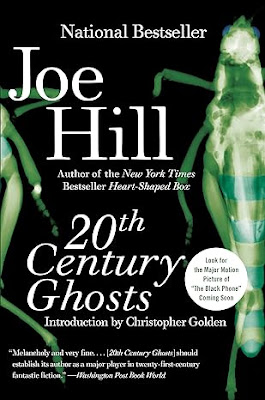Fiction can't really do that. Well... it can, but your readers aren't going to be happy with you if you do.
 |
| And you don't want them taking the chopper to you, and your work. |
Before we get into it this week, don't forget to sign up for my weekly newsletter to get all my updates right in your inbox. Also, if you've got a bit of spare cash that you'd like to use to help keep the wheels turning, consider becoming a Patreon patron! To be sure you're following all of my followables, check out my LinkTree!
Lastly, make sure you check out my Vocal archive for several hundred other articles about geek ephemera, weird history, writing, and more!
Where Exceptions Prove To Be The Rule
For every piece of writing advice out there that tells you not to do something, there's going to be someone who has done it, and been successful while doing it. However, I feel that it's important to point out that the exception proves the rule in a lot of these cases, and it's important that you chew down and analyze why a particular author got away with something that everyone is telling you not to do.
For today's example, the collection 20th Century Ghosts by Joe Hill.
 |
| Seriously, check it out if you haven't, yet. |
Now, not every story in this collection falls into the category of just ending with no falling action, or insufficient resolution. However, as you go through the book, you start to notice that every few stories you'll read one that seems to just stop mid-stride, particularly when it seems to be setting up a longer resolution for the reader. It is, to be a little crude, sort of like a literary version of a ruined orgasm. While a lot of folks I talked to stopped reading the first or second time this happened, if you read through the entire collection, you begin to realize this was a stylistic choice made by the author, and not a fluke, or a result of some deficiency of skill.
Now, I can disagree with that choice. A lot of folks did. However, it should be noted that Joe Hill is an author of no little skill, he has connections in the industry, and a fairly large fan base. So if he wants to take a risk like that in his work because that's his artistic vision, he can get away with that. If you're just starting out, though, you need to do things the traditional way at least a few times to be sure you understand the process completely before you start messing with the rules.
Sort of like how Picasso's early paintings were very traditionally representational, before they descended into the madness of his more signature look.
Stories, whether they're long or short, can't just suddenly jolt the audience to a stop. Once you hit the crescendo, you have the falling action (which I talked about back in Falling Action: The Cool Down of Story Writing), and your wrap up. Now, for short stories, and certain genres of fiction, you can get away with a sudden ending (I'm looking at you, horror). However, even when you have those sudden endings (the door of the tomb closes, trapping the protagonist in the pyramid, the man trapped on a desert island puts the barrel of his gun to his temple, etc.) they often imply the broad strokes of what comes after, or answer questions the audience might have.
This isn't to say that you have to answer every, single question that was asked in a story, and resolve every plot thread from the quirky best friend to the barista who was sleeping with her boss in chapter three. However, before you just decide that you're done telling the story, make sure you have a resolution that is going to stand, and that you've tied everything up with the neatest bow you can so that the story doesn't just flop over because the back end doesn't have the same support that you gave the front end.
Support The Literary Mercenary
For folks who just want to do their part to help keep me making more content, please subscribe/follow me in these locations:
- The Azukail Games YouTube Channel (where I contribute video content)
- My Rumble Channel (longer videos that won't show up on YouTube)
And if you happen to have some spare dosh lying around, and you want to be sure my supply doesn't run low, consider become a Patreon patron, or leaving a tip by Buying Me a Ko-Fi!
Like, Follow, and Come Back Again!
That's all for this week's Craft of Writing! For more of my work, check out my Vocal archive, or at My Amazon Author Page where you can find books like my sci-fi dystopian thriller Old Soldiers, my sword and sorcery novel Crier's Knife, or my most recent short story collection The Rejects!
And to stay on top of all my latest news and releases, collected once a week, make sure you subscribe to The Literary Mercenary's mailing list.
If you'd like to help support my work, then consider Buying Me A Ko-Fi, or heading over to The Literary Mercenary's Patreon page! Lastly, to keep up with my latest, follow me on Facebook, Tumblr, Twitter, and now on Pinterest as well!
No comments:
Post a Comment